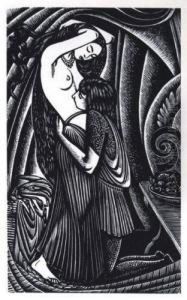Algernon Swinburne Paintings
Algernon Charles Swinburne was not a visual artist, but rather a notable English poet, playwright, novelist, and critic, recognized for his lyrical poetry and radical views. Born on April 5, 1837, in London, England, Swinburne came from an aristocratic family and grew up on the Isle of Wight. He attended Eton College and later Balliol College, Oxford, though he left without obtaining a degree.
Swinburne's poetic works are known for their technical mastery, particularly his use of intricate rhythms and meters, as well as for their controversial content, including themes of eroticism, paganism, and critiques of Victorian morality. His first major work, 'Atalanta in Calydon' (1865), is a verse drama that received critical acclaim for its classical perfection and mastery of the Victorian dramatic and lyrical tradition.
His later collections, such as 'Poems and Ballads' (1866), stirred controversy due to their explicit themes of sexuality and anti-theism. Despite the scandal, Swinburne's reputation as a poet of significance continued to grow, and he became associated with the Pre-Raphaelite movement, forming friendships with artists and writers like Dante Gabriel Rossetti and William Morris.
Throughout his life, Swinburne struggled with alcoholism and possible mental illness, which at times affected his work and public perception. However, he continued to write and publish extensively, touching on various subjects from politics to literary criticism. In the latter part of his career, Swinburne retreated from public life and lived under the care of his friend, Theodore Watts-Dunton, in Putney. During this period, his writing became more conservative and less provocative.
Swinburne's work had a significant impact on the development of English poetry and he is often associated with the Decadent movement, although his influence extended beyond it. His lyrical abilities and passion for classical subject matter left a lasting imprint on the world of poetry. Algernon Charles Swinburne died on April 10, 1909, in London. After his death, his reputation as a poet was somewhat diminished, overshadowed by the emerging modernist movement, but in recent years, there has been a resurgence of interest in his work and its place in Victorian literature.

